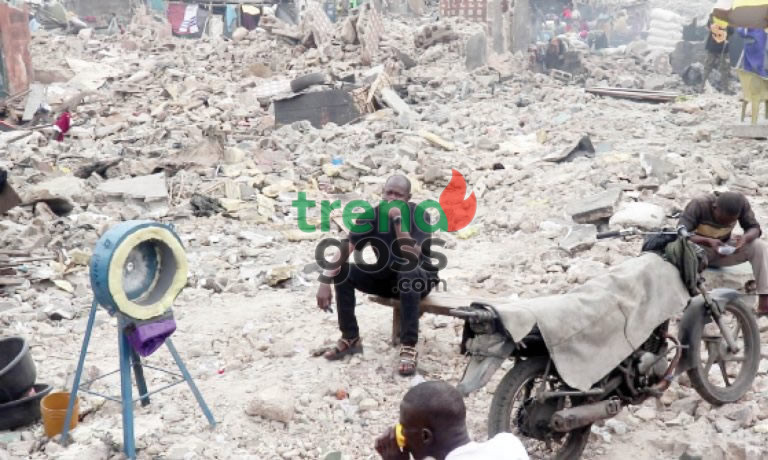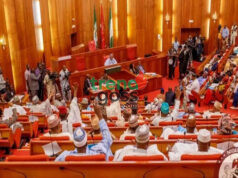The demolition of Alaba Rago Market in Lagos State has sparked outrage, displacement, and accusations of injustice, as thousands of traders face devastating losses.
Historic Market Brought Down After 50 Years
Between August 16 and August 20, 2025, the Lagos State Government carried out a large-scale demolition of the popular Alaba Rago Market, located along the Lagos–Badagry corridor. The market, established in the late 1970s, had been home to thousands of traders—mostly of northern origin—specializing in livestock, grains, perishable foods, scrap materials, and general merchandise.
Over the decades, Alaba Rago grew into a community of more than 3,000 shops, 40 mosques, homes, and informal businesses, serving as a hub for affordable food and goods that attracted buyers across social classes.
Traders, however, lament that what they built for 50 years was demolished within hours, with property losses estimated at ₦20 billion.
Government’s Justification and Traders’ Anguish
Officials claim the demolition targeted illegal structures that caused congestion, insecurity, and environmental disorder. They also stated that a notice of removal had been issued earlier.
But traders argue otherwise, insisting that the land was officially allocated to them in 1979, that they pay taxes and dues regularly, and that no adequate notice was given before the demolition.
“We paid our dues to government for decades, yet our shops were brought down in broad daylight. This is like being evicted and sued at the same time,” said Alhaji Mohammed, a grain seller.
Eyewitnesses described a violent demolition involving bulldozers, armed security operatives, and tear gas. Traders and residents were left stranded, some continuing to trade in open spaces under rain and sun.
Condemnation and Calls for Justice
Human rights lawyer Adam Bashir called the demolition unconstitutional, stressing that the Lagos State Government failed to follow due process as required under Nigeria’s Land Use Act.
Amnesty International also strongly condemned the action, labeling it a “forced eviction” that violated international human rights law. The organization criticized the lack of consultation, compensation, or alternative relocation plans for victims, and urged the Lagos Government to establish a commission of inquiry and compensate displaced traders.
Political activist Omoyele Sowore went further, describing the demolition as “ethnic persecution.”
Traders Demand Accountability
Market leaders estimate over 3,000 shops and 40 mosques were destroyed. Many victims, including widows and orphans who relied on the market for survival, now face uncertain futures.
Alhaji Adamu Katagum, a senior market leader, vowed that the traders will seek justice:
“We are also Nigerians; Lagos is part of Nigeria. We cannot watch our livelihood of 50 years destroyed overnight without due process.”
As debates continue, the Alaba Rago demolition raises critical questions about governance, urban planning, and the protection of citizens’ rights in Nigeria.
____________________________________________________
#AlabaRago #LagosDemolition #HumanRights #AmnestyInternational #ForcedEviction #NigeriaNews #TraderVoices #SanwoOlu #UrbanJustice #BreakingNigeria






